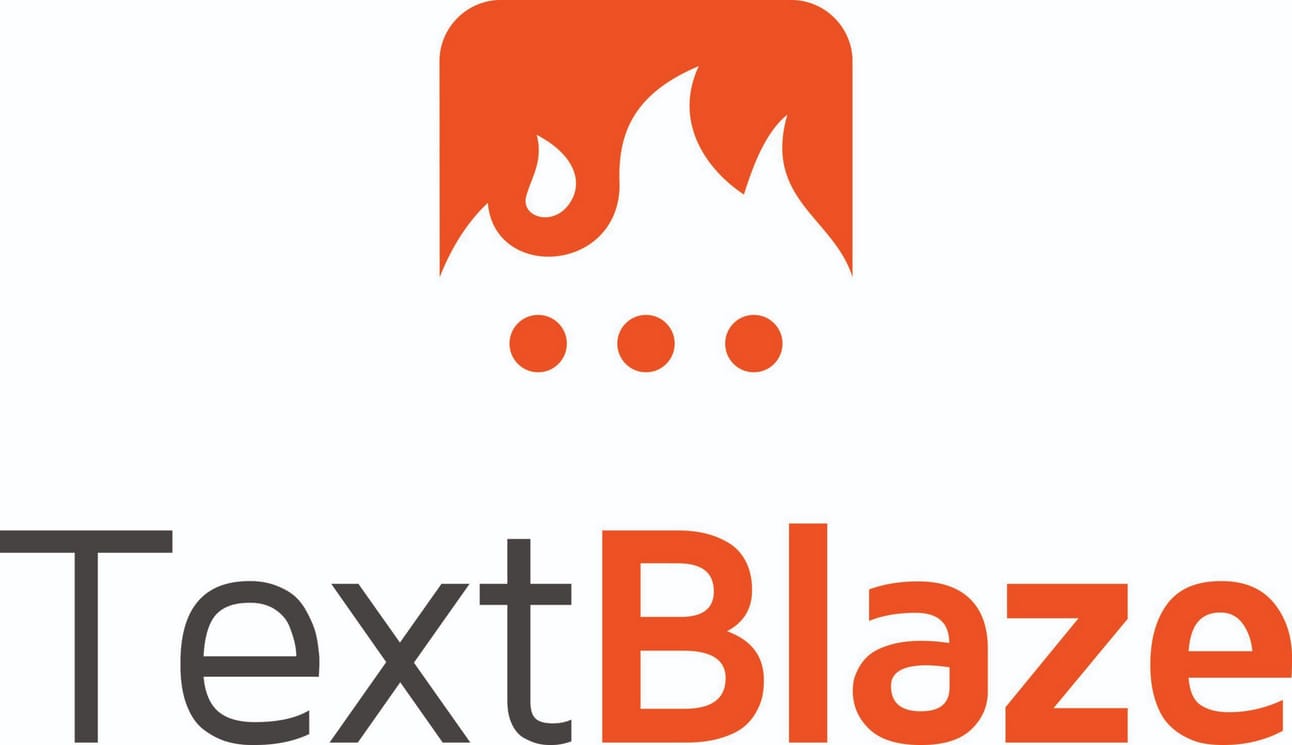- AI Sales Revolution
- Posts
- 🚀 How-to Go Faster with AI - Set. It. Up.
🚀 How-to Go Faster with AI - Set. It. Up.
Make AI Work at the Speed of Sales
Hey there, Sales Innovator! Ever feel like you’re:
Unable to remember all the great prompts you have seen?
Typing the same thing into ChatGPT over and over?
Spending more time explaining your business to AI than actually using it?
Unsure where to implement new whizbang AI tools and prompts? (yes, I said WHIZBANG!)

Confused by AI?
Well, you are not alone. We will address this today and more!
Today, we will explore how to adopt AI, prep AI for speed, and set up a Prompt Management system to make it easier to use AI so that you use it early and often.
Let’s get into it.
Here are 2 mind-blowing stats:
#1 - Results indicate that sales reps spend only 28% of their week actually selling, with the majority of their time consumed by other tasks like deal management and data entry. (This is no surprise to me.)
#2 - 70% of Reps feel overwhelmed. (New Research Reveals, Salesforce 2023).
But our stat of the week includes one of the most poignant statistics about the power of AI.
Stat of the Week:
Sales professionals save an average of two hours and 15 minutes per day by using AI to automate manual tasks.
So by deduction, most sales reps are wasting 2 hours daily on repetitive tasks that could be automated with AI. This means you can virtually double your selling time by using AI. Here is my Texas math--->
[28% of 40 hours = 11.2] + [2.25 hrs per day X 5 days = 11.25 hours] = 22.45 hours per week of selling.
What can YOU do with twice the selling time?!?! I imagine this could make a big impact. Let's accelerate you down this AI path today.
This Week in AI Sales:
The Secret to Lightning-Fast AI Responses
Your Complete Context Creation Guide
Building Your Prompt Management System
Let's. Level. Up! 🚀

Deep Dive: Prepping Your AI Assistant for Speed
The fast-arising term "AI Native", means that you weave AI into your process flows. AI native isn’t just about knowing cool prompts, it's about setting up your AI assistant and AI Tools to understand YOU but also YOU understanding AI to know how and where it can help you/your business.
So if you want to go AI Native and if you want to go fast, there are a few things you need to do and do them ASAP:
Make a plan to adopt AI, including Learning AI through training. Find a summary plan here.
Assess where best to implement AI in your business. Find a business self-assessment form here.
Prep your AI for speed, as discussed below. More detailed instructions here.
Build an AI Management System for success, discussed below. Find a detailed Prompt Mgmt System overview here.
The worst thing you can do is implement the hottest AI tool or prompts haphazardly. That will make you busier without a return on your investment. Instead, you want to audit where you need it, and go there first.
First, let me discuss the Personal Adoption Plan. Here is what you need to do to get up to speed with AI.
Personal AI Adoption Plan
Every adoption plan will differ because we all have different levels of understanding of AI. Step 1 is educating yourself. So it is up to you to find training or groups that discuss AI and its application to your field. Step 2 is to assess where it is best to integrate AI. Several things determine where you integrate AI.
Think about your personal business assessment this way:
Review Key Business metrics - Early Stage/Mid Stage/Late Stage
For example - a Lagging Pipeline requires that you focus on building new business pipeline
Example - Low Meeting conversions - Use AI to personalize, prove value
Example - Late Losses - Use AI to enhance validation, return on investments
Time Delays - use AI to speed up
Areas of low expertise or capacity - use AI to beef up expertise
It is incumbent on you to audit your business and be honest with yourself. This is where you need to use a process or systems brain to break down your sales process into steps to see where there are inefficiencies. If you are a sales leader, you can do this as a team but also help individuals in areas where you see them struggle.
For a 30-day plan, here is a summary I have seen used successfully. The key here is to measure the resulting impact and go slow.
Week 1: Build Your Foundation
🎯 Focus: Understanding AI & Setting Goals
Learn AI basics in sales
Map your current sales process
Learn essential prompting
Identify prime opportunities for AI
Week 2: Taking Action
🚀 Focus: Implementation & Basic Mastery
Research and refine the prompts or decide if a narrow AI tool is more appropriate.
Select and begin using your first AI tool
Integrate AI into daily tasks
Track initial wins, metrics, and challenges
Week 3: Expanding Your AI Arsenal
💪 Focus: Advanced Applications
AI-powered lead generation
Email automation and personalization
Meeting prep enhancement
Progress evaluation and adjustment
Week 4: Mastery & Measurement
📈 Focus: Integration & Impact Analysis
Prompt: Advanced objection handling
Prompt: Proposal Creation
Prompt: Performance Analytics
Prompt: ROI measurement
Pro Tips:
Start small, scale what works
Document your AI prompts
Share wins with your team
Continuously refine your approach

Feeling smarter already?
If you are a sales leader, the assessment plan only changes where your team finds stumbling blocks within the company, and each rep finds their gaps. You can run assessments on the more significant metrics and make some determinations for individuals and the team, based on metrics.
Let's discuss what else can be done to go faster.
Prepping Your AI For Speed - Context
Think of your AI assistant as a new sales intern who knows nothing about you, your company or your product, or sales, for that matter. Although everyone will be a bit different, the following primary areas of context must be pre-written and stored somewhere handy for easy recall.
Here's the Context Framework that I use with all my clients:
Personal Context Setup - Your AI needs to understand you, especially for personalizing your communications.
Your role and experience
Industry expertise
Personal communication style
Success stories and case studies
Target market understanding
Here's your first prompt template:
Personal Context Prompt Template:
I am a [role] at [company] with [X] years of experience in [industry].
My expertise includes [key skills/knowledge areas]. I typically work with [ideal customer profile] and help them solve [common problems].
My communication style is [formal/casual/consultative] and I've had particular success with [specific achievement or approach].
<Feel free to indulge as much as necssary>2. Business Context Creation - Your AI needs to understand your business inside and out:
Product/service details
Unique value propositions
Common objections and responses
Target market specifics
Competitive landscape
Business Context Prompt Template:
Our company [company name] provides [product/service] to [target market].
Our main value propositions are [list 3-4 key benefits].
We typically compete against [competitors] and differentiate by [key differentiators].
Our ideal customer profile is [ICP details] and they typically face these challenges:
[list common pain points].
<Feel free to indulge as much as necssary>Pro Tip: Store these contexts in what I call your "AI Prompt Guide" - I'll show you how in a moment.
3. Product/Solution Context Template: Your AI needs to understand your product, the value and the clientele so it can build proposals, emails, presentations, etc.
Technical specifications
Feature benefits
Use cases
Success metrics
Implementation process
Product Solution Context Prompt:
Here is the context on my product:
Main offering: [primary product/service] Key features: - [Feature 1] - [Feature 2] - [Feature 3] Primary benefits: - [Benefit 1] - [Benefit 2] - [Benefit 3] Unique selling propositions: 1. [USP 1] 2. [USP 2] 3. [USP 3] Pricing model: [describe pricing structure] Implementation process: [brief overview]
<Feel free to indulge as much as necssary>Target Market Information Context Prompt
Ideal Customer Profile: - Industry: [target industries] -
Company size: [employee range/revenue range] - Geographic location: [target regions] - Decision makers: [typical titles/roles] - Budget range: [typical investment range]
Common pain points solved:
1. [Pain point 1]
2. [Pain point 2]
3. [Pain point 3]
Typical buying triggers:
1. [Trigger 1] 2. [Trigger 2] 3. [Trigger 3]Here's where most reps go wrong - they treat prompts like disposable notes. Instead, build a system for use, reuse, and evolution. Let's get into it.
The Game-Changing Prompt Management System
The first few times I used AI, I realized I was typing in the same things over and over and over. Then I realized I would be using AI on my desktop, on my mobile device and then within apps that I purchased but also apps that my company selected.
For this reason, I knew I needed to write and reuse both context and prompts. I also realized I needed something that would go across mobile and my laptop, but also be available on the web, something that automatically synchronized across those platforms. There are various tools, some that are free, some that have minimal cost and some that are a bit more formal. Let me address these options,
My Recommended Prompt Guide Setup (If you want Free):
Use Google Docs (free and accessible everywhere)(Can be Azure Word, too)
Create clear categories (Personal, Business, Product, etc.)
Use the Outline View for quick navigation
Store variations for different scenarios
Include metadata (when to use, variables to modify)
AI Tool of the Week:
TextBlaze If you're serious about prompt management, TextBlaze lets you create shortcuts for your most-used prompts. Plus shortcut keystrokes to recall the prompts. It is a game-changer for speed!

My Recommended Setup (If you are okay with spending $):
Use Text Blaze (about $3 per month and accessible laptop and phone)
Create clear categories (Personal, Business, Product, etc.)
Has shortcut keystrokes that auto pastes into fields
Store variations for different scenarios
Can also store context for easy recall
My Recommended Setup for Teams (If you are okay with spending $$):
Use Teamai.com (about $5 per month for 10 user team, accessible laptop). This is a prompt storage tool with search.
Create clear categories (Personal, Business, Product, etc.)
Store variations for different scenarios
Can also store context for easy recall
Okay, now it is time for you to pick your solution and begin recording prompts, context, and anything that can be reused.

Starting to make sense?

What You Learned Today:
How to create comprehensive context for your AI
The framework for organizing your prompts
A system for managing and recalling prompts quickly
Tools to accelerate your AI workflow (Text Blaze and TeamAI.com)
Ready to become AI Native? Here's your homework:
Fill out the context templates above and store for easy recall
Set up your Google Doc prompt management system
Start categorizing your existing prompts and share them amongst your team, ask them to pitch in as well.
Don't let poor AI setup slow you down. Get these fundamentals right, and watch your productivity soar!
Explore More:
AI Sales Accelerator (Dropping Soon)
AI Sales Revolution (Dropping Soon)
That is all for this week but keep pushing forward
